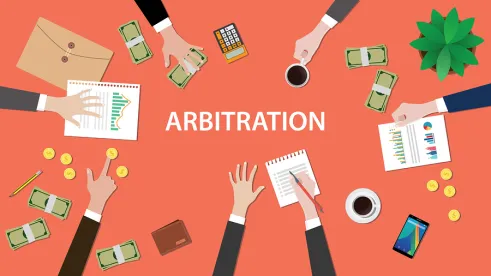While arbitration as a form of alternative dispute resolution (“ADR”) has long had a presence in American jurisprudence, a recent Supreme Court decision —coupled with significant cultural trends —have left many employers and legislators wondering about the continued viability of mandatory pre-dispute arbitration for all employment disputes.
Is the FAIR Act Fundamentally Unfair to Employers?
On February 28, 2019, U.S. Representative Hank Johnson (D-GA) and U.S. Senator Richard Blumenthal (D-CT) introduced “The Forced Arbitration Injustice Repeal Act” (“FAIR Act”) which seeks to (1) prohibit pre-dispute arbitration agreements that force arbitration of future employment, consumer, antitrust, or civil rights disputes, and (2) prohibit agreements and practices that interfere with the rights of individuals, workers, and small businesses to participate in a joint, class, or collective action related to an employment, consumer, antitrust, or civil rights dispute.
The Senate bill is S. 610. It has 33 co-sponsors, all Democrats. It has been referred to the Senate Judiciary Committee, where it is unlikely to receive consideration. The House bill (H.R. 1423), on the other hand, has been referred to the House Judiciary Committee where it is likely to receive active consideration. It has 160 co-sponsors.
Impact of the Fair Act
If enacted, this legislation would drastically alter employer/employee relations nationwide—particularly due to the bill’s rather broad definition of an “employment dispute.” The bill would render unenforceable any arbitration agreement raised in response to a dispute between one or more individuals (or their union) and a person “arising out of or related to the work relationship or prospective work relationship between them, including a dispute regarding the terms of or payment for, advertising of, recruiting for, referring of, arranging for, discipline or discharge in connection with, such work.” This legislation would apply to agreements made with both employees and independent contractors alike.
Perhaps the largest blow to employers would be the bill’s prohibition on agreements that require aggrieved employees to pursue their claims on an individual rather than a class basis. One of the biggest advantages that mandatory arbitration provides is the ability to compel aggrieved employees to individual arbitrations, rather than pursuing class claims against employers. Individual arbitration clauses are generally used to prevent small claim/high stakes lawsuits—suits where plaintiffs’ possible recovery is exceeded by the cost of litigation but which could cost companies significant sums if brought as a class action. When the clause is enforced against such a claim, plaintiffs usually have to abandon the suit, as the cost of arbitrating on an individual basis is prohibitively expensive, and the potential recovery is too low for them to secure representation. What was once a contentious legal grey area has now been firmly established by a recent U.S. Supreme Court decision in Epic Systems Corp. v. Lewis. The Court in Epic Systems held that arbitration contracts that compelled employees to arbitrate individually, as opposed to collectively, were to be enforced by those terms. The Court went on to conclude that agreements that require employees to waive their right to bring a collective action do not violate any provisions of the National Labor Relations Act (“NLRA”).
History of Arbitration
Favorable judicial treatment of arbitration can be traced to The Federal Arbitration Act of 1925 (“FAA”). Its enactment represented a national policy favoring the practice and made agreements to arbitrate valid and enforceable unless one party could show fraud, unconscionability, or some other grounds that would be sufficient to render the contract unenforceable. Since the enactment of the FAA, the use of arbitration has grown substantially, particularly in the labor and employment context where the use of mandatory arbitration agreements has become a widespread practice. Mandatory arbitration agreements are generally entered into by prospective employees as a precondition to employment with limited opportunity afforded for negotiation. These agreements typically require employees to bring claims against their employers in solo arbitration, rather than a court.
Advantages and Widespread Use of Arbitration
There are, of course, positives and negatives to the use of arbitration. First, arbitration is typically much quicker than court proceedings, which in turn results in less attorney hours being billed, saving employers both money and internal resources. Additionally, many arbitration agreements include confidentiality clauses that can help shield employers from the embarrassment and reputational harm that can potentially come from a public trial or media focus. Of course, another advantage is the ability to compel aggrieved employees to pursue their claims individually. One significant downside of arbitration is the difficulty in appealing an arbitrator’s decision—judicial review of arbitration decisions is severely constrained under both federal and state law. Other downsides are that employers find it difficult to prevail using a motion to dismiss prior to trial, employers must shoulder the full cost of arbitration, and discovery obligations can be very broad.
It is easy to see how the advantages offered by mandatory arbitration agreements have resulted in their widespread implementation across the private sector. One study conducted by the Economic Policy Institute, a nonprofit employee advocacy group, found that “more than half—53.9 percent—of nonunion private-sector employers have mandatory arbitration procedures. Among companies with 1,000 or more employees, 65.1 percent have mandatory arbitration procedures.” The study further estimates that “among private-sector nonunion employees, 56.2 percent are subject to mandatory employment arbitration procedures.”
Other Legislation Targeting Arbitration
It is expected that The Restoring Justice for Workers Act will be introduced in 2019 by Rep. Jerrold Nadler (D-NY). In the last Congress, it had 58 co-sponsors, all Democrats. The bill would prohibit mandatory pre-dispute arbitration in the employment context altogether. In addition, the bill would amend the National Labor Relations Act, and would prescribe relief set forth by the Civil Rights Act in civil actions.
In addition, The Ending Forced Arbitration of Sexual Harassment Act likely will be re-introduced by Sen. Kristen Gillibrand (D-NY). It would prohibit mandatory pre-dispute arbitration of sex discrimination claims. It had bipartisan support in the last Congress.
Cultural Trends and Pushback in the #MeToo Era
Despite its long history and widespread use, however, cultural trends — and particularly the “#MeToo” movement — have led to a strengthening pushback against employers who utilize mandatory arbitration agreements in their hiring. #MeToo advocates argue that mandatory arbitration agreements often keep survivor experiences and perpetrator behaviors secret due to non-disclosure agreements. Largely in reaction to these arguments, several large employers have begun to reassess their use of the agreements, some eliminating them entirely. For example, a week after 20,000 employees walked out of Google in protest over allegations of sexual misconduct by high level executives, the company announced that it would be ending its enforcement of mandatory arbitration agreements. Similar actions have been taken by other large employers, such as Facebook, Microsoft, Uber, and Lyft. Even the law firm Munger, Tolles & Olson announced that it would no longer require employees to sign mandatory arbitration agreements.
Conclusion
While the FAIR Act would result in sweeping change to employment relations across the country, it appears — at least for now — that mandatory pre-dispute arbitration agreements are here to stay. With a Republican controlled Senate, it seems very unlikely that this bill will be taken up for a vote, much less signed into law.



 />i
/>i

